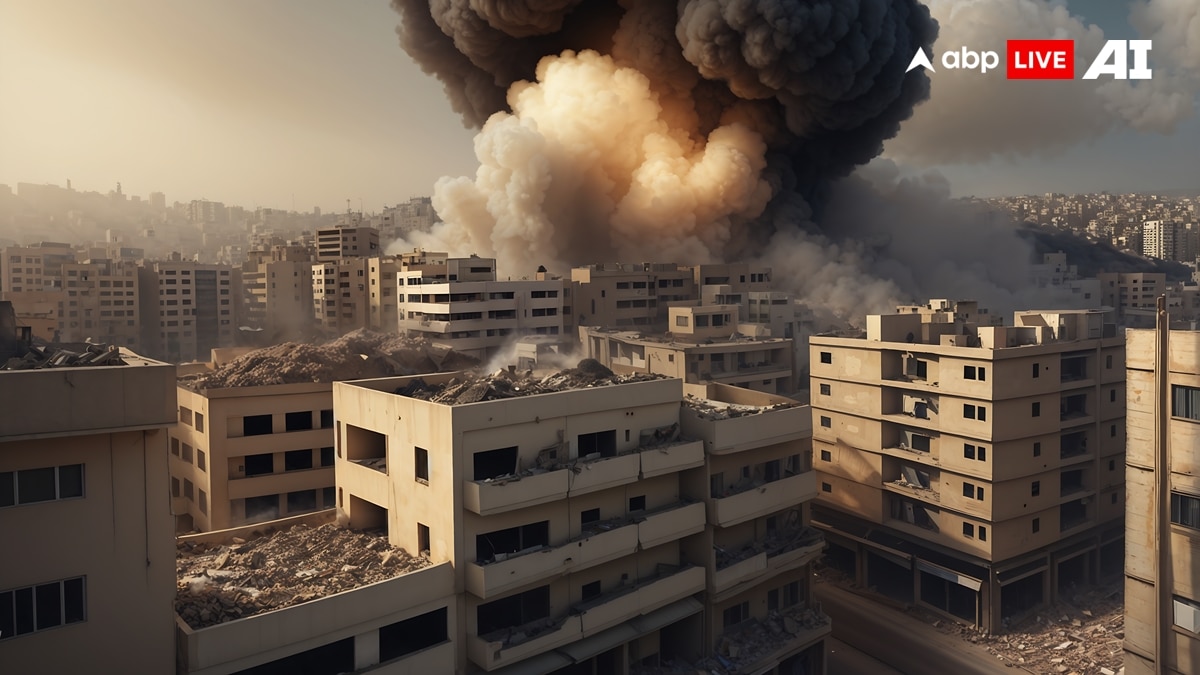India has expressed deep concern over the escalating tensions in the Middle East following a series of Israeli airstrikes targeting military infrastructure in Iran. In a statement released by the Ministry of External Affairs (MEA) on Saturday, the government reiterated its call for restraint and urged all parties involved to return to dialogue and diplomacy.
"We are deeply concerned by the evolving escalation in West Asia and its ramifications for peace and stability in the region and beyond," the MEA statement read. "The ongoing hostilities are to nobody’s benefit, even as innocent hostages and civilian populations continue to suffer. Our Missions in the region are in contact with the Indian community."
ALSO READ | Israeli Strike In Iran Kills 2 Soldiers; US, Allies Urge Tehran Not To Retaliate. Hamas Condemns Attack
4 Dead In Israeli Airstrikes On Iran's Military Infrastructure
Iran has raised the death toll from the recent Israeli airstrikes to four, all of whom were part of the country's military air defence forces. The strikes, which took place in the early hours of Saturday, marked a significant escalation as Israel openly targeted military facilities in Iran.
Iran's state-run news agency IRNA reported that the four military personnel killed were involved in air defence but did not specify their locations. The Iranian military stated that the strikes targeted bases in Ilam, Khuzestan, and Tehran provinces but provided no further details. The Islamic Republic claimed that the attacks caused “limited damage.”
According to the Associated Press, Iran's Foreign Ministry asserted its right to self-defence, stating that the nation is "entitled and obligated to defend against foreign acts of aggression." Iranian Foreign Minister Abbas Araghchi emphasised that Iran has “no limits” when it comes to defending its national interests.
However, Iran’s military later issued a statement suggesting that any cease-fire in Israel’s ongoing ground offensives in the Gaza Strip and Lebanon would take precedence over any potential retaliatory action, AP reported.
According to Israel's military, the targeted facilities included those used for missile production and surface-to-air missile sites. There were no immediate reports of oil or nuclear sites being affected, which would have indicated a far more serious escalation.
U.S. President Joe Biden confirmed that Israel had notified him prior to the strikes, adding that the attacks appeared to have targeted only military sites. He remarked, "I hope this is the end," after concluding a call with intelligence officials.
Notably, Iran has not witnessed such sustained bombardment from a foreign adversary since its war with Iraq in the 1980s. Explosions were reported in Tehran until sunrise, underscoring the intensity of the situation.
On October 1, Iran retaliated against Israel by launching at least 180 missiles, which caused minimal damage and a few injuries. Israeli Prime Minister Benjamin Netanyahu stated that Iran had "made a big mistake." The airstrikes by Israel occurred as a response to the ballistic missiles fired by Iran.
According to the Israeli military, the pre-dawn airstrikes aimed at facilities used by Iran to manufacture the missiles, as well as surface-to-air missile sites. While explosions were reported in Tehran, Iranian officials claimed that the attacks caused only "limited damage", news agency AP reported. Iran’s Al-Alam television reported that two Iranian troops were killed in the incident.
According to AP, Israeli military spokesperson Rear Adm. Daniel Hagari commented, "Iran attacked Israel twice, including in locations that endangered civilians, and has paid the price for it." He emphasised that the Israeli Defence Forces had fulfilled their mission and warned that any new round of escalation from Iran would compel Israel to respond.
The recent developments risk intensifying the conflict between Israel and Iran, especially at a time when militant groups backed by Iran, such as Hamas in Gaza and Hezbollah in Lebanon, are already engaged in hostilities with Israel.


